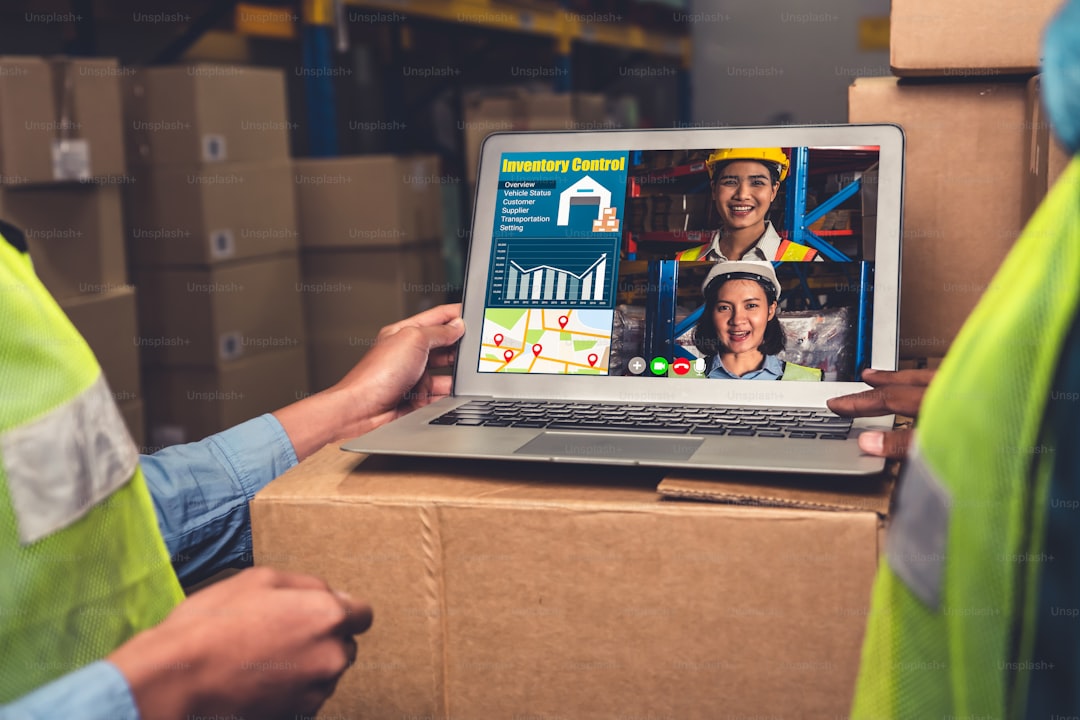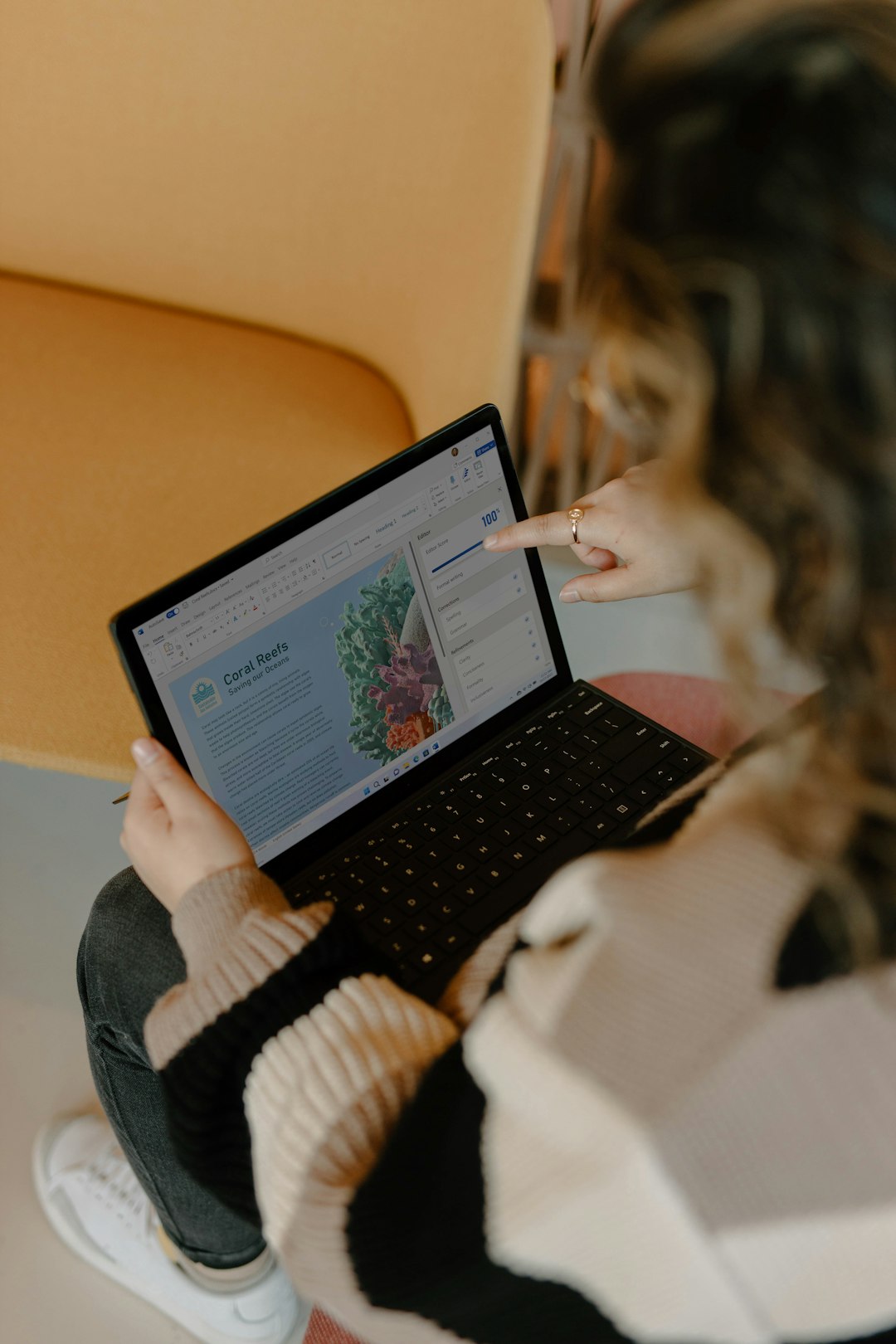Building a Secure Financial Plan on the Road

Introduction
Living a location‑independent lifestyle offers freedom, adventure and the chance to explore cultures on your own terms. That freedom, however, comes with a unique set of financial responsibilities. Without the safety net of a traditional office or a single tax jurisdiction, digital nomads must build a financial plan that can weather currency fluctuations, changing residency rules, and the inevitable gaps between contracts.
A secure financial plan on the road is more than a spreadsheet. It is a living system that integrates income streams, budgeting habits, tax compliance, insurance coverage, retirement savings, and emergency preparedness. The goal of this guide is to give you a clear roadmap for constructing that system, step by step, so you can focus on the experiences that matter while your finances stay solid and compliant.
Understanding the Nomadic Income Landscape
Diverse Sources of Revenue
Digital nomads typically draw money from a mix of sources: freelance project work, remote salaried positions, consulting retainers, affiliate marketing, online courses, and passive investments such as dividend‑paying stocks or rental properties. Each source has its own cash flow pattern, tax treatment, and level of stability.
- Freelance project work often arrives irregularly, with payment terms ranging from immediate PayPal transfers to 60‑day invoices.
- Remote salaried positions usually provide a predictable monthly paycheck but may be subject to payroll taxes in the employer’s country.
- Consulting retainers give a semi‑regular income stream, typically invoiced monthly or quarterly.
- Affiliate and content revenue can be volatile, fluctuating with traffic and market trends.
- Passive investments generate regular dividends or interest, but they may be taxed differently depending on your tax residency.
Mapping these streams on a timeline helps you see when cash is likely to arrive and where gaps may appear. A simple visual, such as a monthly cash‑flow calendar, is a valuable first step.
Currency Considerations
When you receive payments in multiple currencies, you expose yourself to exchange‑rate risk. A sudden devaluation of a currency you rely on can erode your purchasing power in the country where you are staying.
- Multi‑currency accounts offered by fintech providers let you hold, convert, and spend in several currencies without high fees.
- Forward contracts allow you to lock in an exchange rate for a future payment, useful for large, predictable invoices.
- Regular conversion strategy – converting a portion of foreign earnings each week – smooths out the impact of daily rate swings.
Understanding the cost structure of your chosen banking and payment platforms is essential. Some providers charge a fee per conversion, while others embed the spread in the rate. Choose the option that aligns with the volume and frequency of your transactions.
Crafting a Resilient Budget
The Core Budget Framework
A robust budget for nomads balances three pillars: essential living costs, variable lifestyle expenses, and savings/investments.
- Essential living costs include accommodation, food, local transportation, health insurance, and communication (internet, phone).
- Variable lifestyle expenses cover travel tickets, coworking space memberships, leisure activities, and occasional upgrades in accommodation.
- Savings and investments encompass emergency funds, retirement contributions, tax savings, and long‑term wealth building.
Allocate a percentage of each incoming payment to these pillars before you spend any money. A common split is 50 % essential, 30 % variable, and 20 % savings, but adjust the ratios based on your personal risk tolerance and income stability.
Tracking Expenses on the Move
Traditional budgeting apps often rely on fixed location data or domestic banking feeds, which can be unreliable for nomads. Look for tools that support multi‑currency tracking and allow manual entry of cash transactions.
- Spreadsheet templates give you full control and can be customized to your currency mix.
- Cloud‑based budgeting apps such as YNAB or PocketGuard have mobile versions and can import data from international banks.
- Expense journals – a simple notebook or a note‑taking app – are useful for capturing cash purchases that may not appear in digital statements.
Regularly reconciling your expenses with your income ensures you stay within your allocated percentages and quickly spot any overspending trends.
Building an Emergency Safety Net
Determining the Right Size
An emergency fund for a nomad should cover more than just three months of essential expenses. Because you may encounter unexpected visa fees, emergency medical costs, or a sudden loss of income, a safe target is six months of essential living costs measured in your base currency (the one you use for most of your spending).
Calculate the monthly essential cost, multiply by six, and keep that amount liquid in an easily accessible account. A high‑yield savings account with low withdrawal fees is ideal. Avoid locking emergency funds in long‑term investments or retirement accounts where early withdrawal penalties apply.
Accessing Funds Anywhere
Your emergency fund must be reachable from any country. Choose a banking solution that offers:
- Global ATM fee rebates or a network of fee‑free ATMs.
- Low‑cost international transfers in case you need to move money between accounts.
- Strong online security such as two‑factor authentication and the ability to freeze the card remotely.
Consider keeping a small portion of the emergency fund in a secondary account in a different jurisdiction as a backup in case your primary bank experiences service outages.
Navigating Tax Residency and Compliance
Defining Tax Residency
Tax residency is the legal concept that determines which country has the right to tax your worldwide income. It is not the same as the country where you are physically present at any given moment. Most countries use one or more of the following criteria:
- Physical presence – spending more than 183 days in a tax year within the country.
- Center of vital interests – where your personal and economic ties are strongest.
- Nationality – some nations tax citizens regardless of residence.
Because you move frequently, you can fall into the “tax home” of multiple jurisdictions if you are not careful. Understanding each country’s rules helps you avoid accidental dual residency and double taxation.
Common Nomad-Friendly Tax Regimes
- Portugal’s Non‑Habitual Resident (NHR) program offers a ten‑year tax break on foreign‑sourced income for qualifying individuals.
- Georgia’s “Remotely from Georgia” visa allows stays up to a year with a flat personal income tax rate of 20 % on Georgian‑source income, while foreign income remains untaxed.
- UAE’s zero personal income tax makes it attractive for digital nomads who can establish a legal presence through a free‑zone company.
- Costa Rica’s “Rentista” visa requires proof of a stable monthly income but does not tax foreign earnings.
Research each program’s eligibility requirements, minimum stay periods, and reporting obligations before committing.
Structuring Income for Tax Efficiency
- Separate personal and business accounts – this simplifies reporting and shows a clear audit trail.
- Consider forming an offshore company – many nomads incorporate in jurisdictions such as Estonia (e‑Residency) or Singapore to invoice clients and benefit from favorable corporate tax rates.
- Utilize tax treaties – if your home country has a double‑taxation agreement with the country you are staying in, you can claim credits or exemptions to avoid being taxed twice on the same income.
- Track days spent in each country – a simple spreadsheet with entry and exit dates helps you prove residency status if questioned by tax authorities.
Filing Obligations and Deadlines
Even if you are not a tax resident of a particular country, you may still have filing obligations. For example:
- US citizens and green card holders must file a federal return annually, regardless of where they live, and may need to report foreign bank accounts (FBAR) if balances exceed $10,000.
- UK domiciliaries may be taxed on worldwide income until they become non‑domiciled, at which point the “remittance basis” may apply.
- Australian residents are taxed on worldwide income but can claim foreign income tax offsets.
Create a master calendar that lists the filing deadlines for each jurisdiction you are linked to. Set reminders at least one month before each due date to give yourself time to gather documents.
Protecting Yourself with Insurance
Health Insurance Essentials
Traditional health insurance plans are often tied to a specific country and may not provide coverage abroad. For nomads, the following options are common:
- International medical insurance – policies that cover emergency care, hospitalization, and sometimes routine visits in any country. Companies such as SafetyWing, World Nomads, and Cigna Global specialize in this market.
- Travel medical insurance – short‑term coverage for trips up to 90 days, useful for occasional long stays but not for year‑long residencies.
- Local health insurance – when you stay in a country for an extended period, buying a domestic plan may be cheaper and provide better access to local providers.
When selecting a plan, compare:
- Coverage limits for hospitalization and outpatient care.
- Inclusion of pre‑existing condition clauses.
- Repatriation and medical evacuation benefits.
- Network of hospitals and doctors in your most frequent destinations.
Property and Liability Coverage
- Travel belongings insurance protects against loss, theft, or damage to laptops, cameras, and other work equipment.
- Professional liability insurance (errors and omissions) is essential for consultants and freelancers who provide advice or services to clients.
- Personal liability insurance can protect you if you accidentally cause injury or property damage to a third party, a consideration especially when renting short‑term accommodation.
Choose policies that allow you to add or remove coverage as you move between countries, avoiding long‑term lock‑ins that become irrelevant.
Planning for Retirement on the Road
Selecting the Right Retirement Vehicles
Digital nomads often rely on a mix of retirement accounts from their home country and international options.
- Home‑country retirement accounts (e.g., 401(k) in the US, RRSP in Canada) continue to grow tax‑deferred, but contributions may be limited once you stop earning domestic wages.
- International retirement plans such as a Self‑Invested Personal Pension (SIPP) in the UK or a private pension in Malta can be funded through offshore companies.
- Tax‑advantaged savings like a Roth IRA (US) allow post‑tax contributions that grow tax‑free, beneficial if you expect to be in a higher tax bracket later.
Evaluate the tax treatment of withdrawals in the countries you anticipate retiring in, and consider currency diversification to hedge against inflation.
Automating Contributions
Set up automatic transfers from your main income account to your retirement accounts. Even a modest monthly contribution of $200 can compound significantly over decades. Use a global payroll service or a fintech platform that supports recurring cross‑border transfers with low fees.
Monitoring Investment Performance
Because you may be subject to different tax reporting rules, keep detailed records of each contribution, the currency used, and the exchange rate at the time of deposit. Use a portfolio tracker that supports multi‑currency holdings and can generate reports in your home‑country tax format.
Leveraging Technology for Financial Management
Multi‑Currency Banking Platforms
- Wise (formerly TransferWise) – offers a borderless account with local banking details in several countries, low‑cost conversions, and a debit card that works globally.
- Revolut – provides free currency exchange up to a certain limit each month, budgeting tools, and cryptocurrency support.
- N26 – a European digital bank with fee‑free ATM withdrawals in the Eurozone and a sleek mobile app.
Select a primary account based on the regions you spend most time in, and keep a secondary account as a backup.
Accounting and Invoicing Tools
Freelancers benefit from cloud‑based accounting software that integrates with multiple payment gateways. Popular choices include:
- Xero – robust for invoicing, expense tracking, and multi‑currency reporting.
- QuickBooks Online – familiar to many accountants and offers tax‑ready reports.
- FreshBooks – simple interface for small‑scale freelancers and integrates with time‑tracking tools.
Automate invoice reminders and set up recurring invoices for retainers to ensure cash flow remains steady.
Security Practices
- Enable two‑factor authentication on every financial platform.
- Use a hardware security key for critical accounts.
- Keep a secure offline backup of important documents (passport scans, tax filings, insurance policies) on an encrypted USB drive stored in a separate location from your primary devices.
- Regularly review account activity for unauthorized transactions.
Managing Visa Costs and Legal Obligations
Budgeting for Visa Fees
Visa applications, extensions, and renewals can be a hidden expense. Create a separate line item in your variable lifestyle budget for visa costs, estimating the average fee per country you plan to visit. Some destinations offer digital nomad visas with multi‑year validity, which can reduce recurring costs.
Keeping Documentation Organized
Maintain a digital folder (e.g., on Google Drive or Dropbox) with subfolders for each country. Include:
- Visa approval letters and copies of the passport page with the visa stamp.
- Proof of income required for the visa (bank statements, contract letters).
- Health insurance certificates that meet the country’s entry requirements.
Having everything centralized makes renewal processes smoother and reduces the risk of missing a deadline.
Sustainable Lifestyle Choices that Support Financial Health
Choosing Cost‑Effective Accommodation
- Co‑living spaces often provide a bundled package of rent, utilities, high‑speed internet, and community events, which can be cheaper than short‑term rentals in popular cities.
- House‑sitting platforms allow you to stay for free in exchange for pet or property care, drastically cutting housing expenses.
- Long‑term Airbnb rentals (30 + days) typically qualify for discounted rates and give you the flexibility to move when needed.
Managing Internet Access
A reliable internet connection is essential for earning. Invest in a portable hotspot device and purchase local SIM cards with data plans in each country. Some nomads also carry a backup satellite internet device for remote locations.
Minimizing Lifestyle Inflation
The excitement of new destinations can lead to higher spending on dining, nightlife, and experiences. Use the variable lifestyle budget as a guardrail: allocate a set amount for discretionary spending each month, and track it diligently. This practice helps you enjoy the moment without jeopardizing long‑term savings.
Review, Adjust, and Iterate
Financial planning for a nomadic life is not a one‑time event. Your income sources, destinations, and personal goals will evolve. Set a quarterly review routine:
- Reconcile all accounts – ensure income, expenses, and conversions are accurately recorded.
- Assess budget allocations – adjust percentages if you notice a consistent surplus or shortfall in any pillar.
- Update tax residency status – verify days spent in each country and confirm you are not unintentionally crossing residency thresholds.
- Check insurance coverage – confirm policies are still valid for your current location and that limits meet any new risk exposure.
- Refresh emergency fund target – if your essential costs have risen, increase the fund accordingly.
Document any changes you make and the reasoning behind them. Over time, this log becomes a valuable reference that shows how your financial strategy has adapted to new circumstances.
Conclusion
Building a secure financial plan while traveling the world requires a blend of discipline, foresight, and adaptability. By mapping out diverse income streams, establishing a resilient budget, maintaining a robust emergency fund, and staying compliant with tax and legal obligations, you create a foundation that lets you focus on the experiences that make nomadic life rewarding. Leverage technology to simplify multi‑currency management, protect yourself with comprehensive insurance, and keep retirement goals in view even as you hop between time zones.
Remember that the most powerful tool in this journey is regular review. The world will continue to change, and so will your personal circumstances. Treat your financial plan as a living document, and it will support you through every border you cross and every new adventure you pursue.
Random Posts

Boost Your Remote Productivity with the Best Cafes and Flexible Workspaces
Discover how the right café or flexible workspace can supercharge your remote work. Learn to spot reliable Wi, Fi, power, ergonomics and vibe, plus curated spots worldwide to stay focused, creative and productive
1 week ago

Digital Nomad Mexico Safety and Travel Tips
Discover essential safety advice and travel hacks for digital nomads in Mexico, from choosing secure neighborhoods and navigating transport to health care tips and cultural etiquette for a smooth remote work adventure
2 months ago

Building a Supportive Nomad Community for Better Wellbeing
A strong nomad community turns solo travel into shared wellbeing, giving you reliable health tips, mental resilience support and lasting connections wherever you roam.
1 month ago

Top Remote Job Boards Every Freelancer Should Bookmark
Discover the essential remote job boards that let freelancers skip endless scrolling, find vetted projects, filter by pay and length, and turn the job hunt into a quick, predictable routine.
1 week ago

Bali Budget Blueprint for Digital Nomads
Discover how to live and work in Bali on a budget with clear expense breakdowns, money-saving tips, and sample monthly plans that let you enjoy the island without overspending.
1 month ago
Latest Posts

Essential Software Every Remote Professional Should Use
Master remote work with essential tools: instant messaging like Slack, high definition video calls such as Zoom, and asynchronous voice apps. Streamline communication, stay connected and boost productivity.
1 day ago

Mastering Remote Work Productivity for Digital Nomads and Freelancers
Learn proven habits, tools, and tactics that help digital nomads and freelancers stay focused, deliver quality work, and maintain a sustainable lifestyle while traveling the world.
1 day ago

Tech‑Friendly European Towns Perfect for Remote Living
Discover Europe’s best small towns where fast internet, affordable living and vibrant tech communities let you work remotely while soaking up historic charm, lakeside views or mountain air.
1 day ago